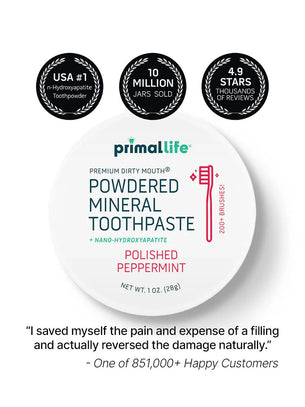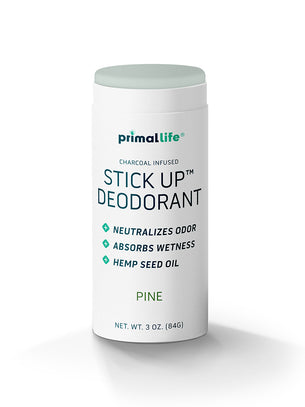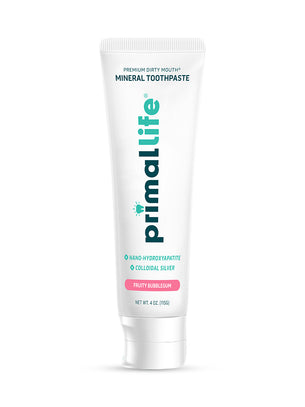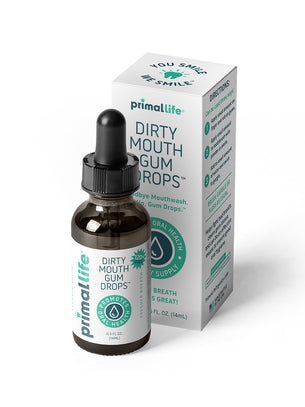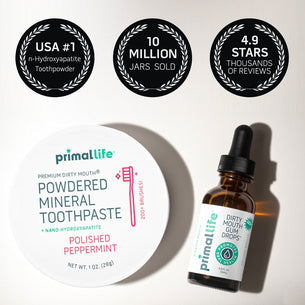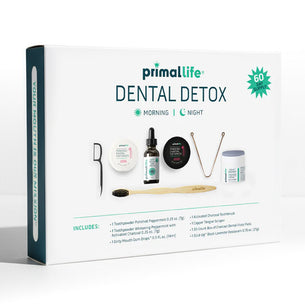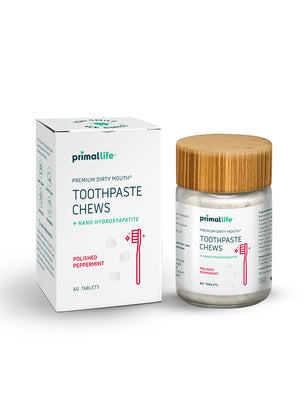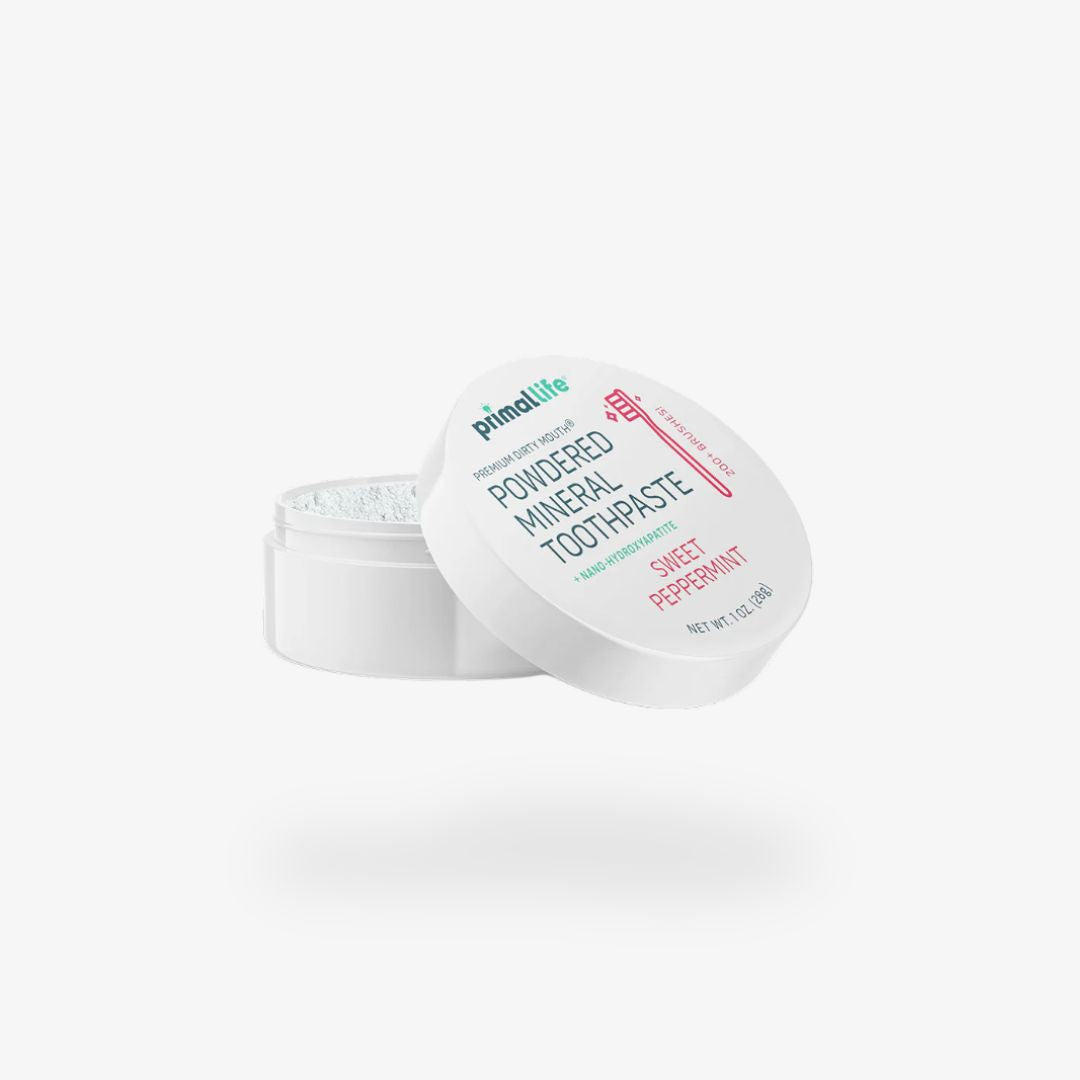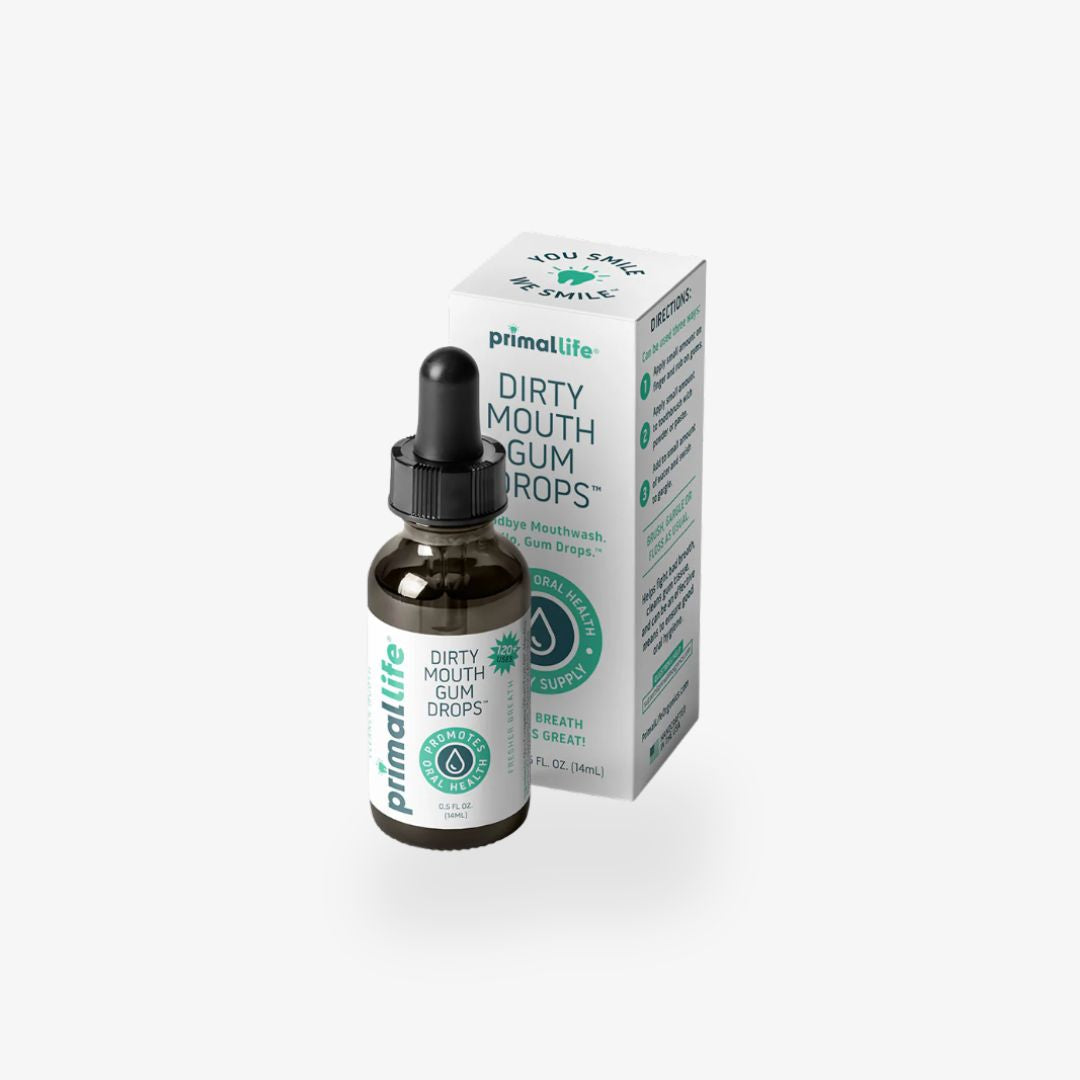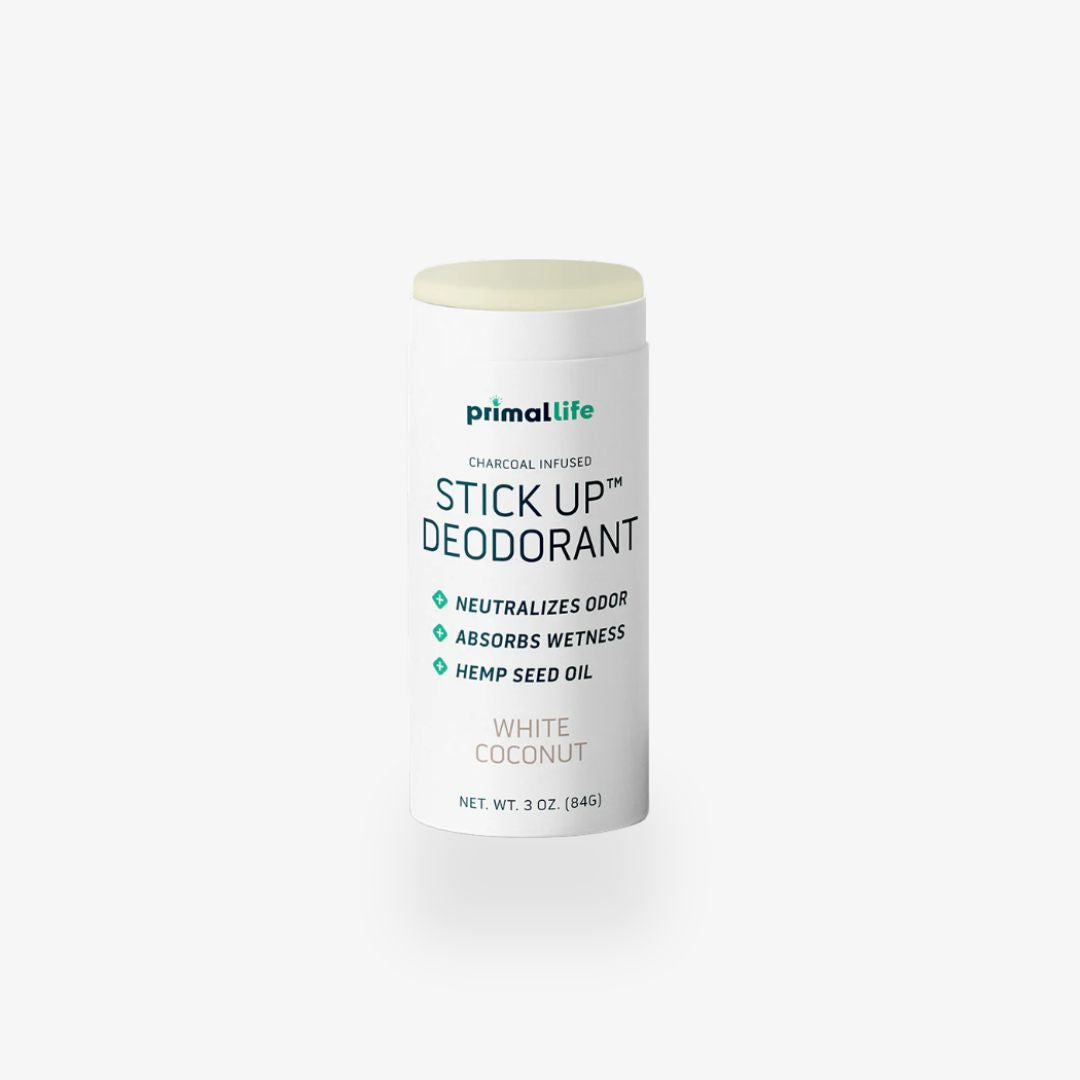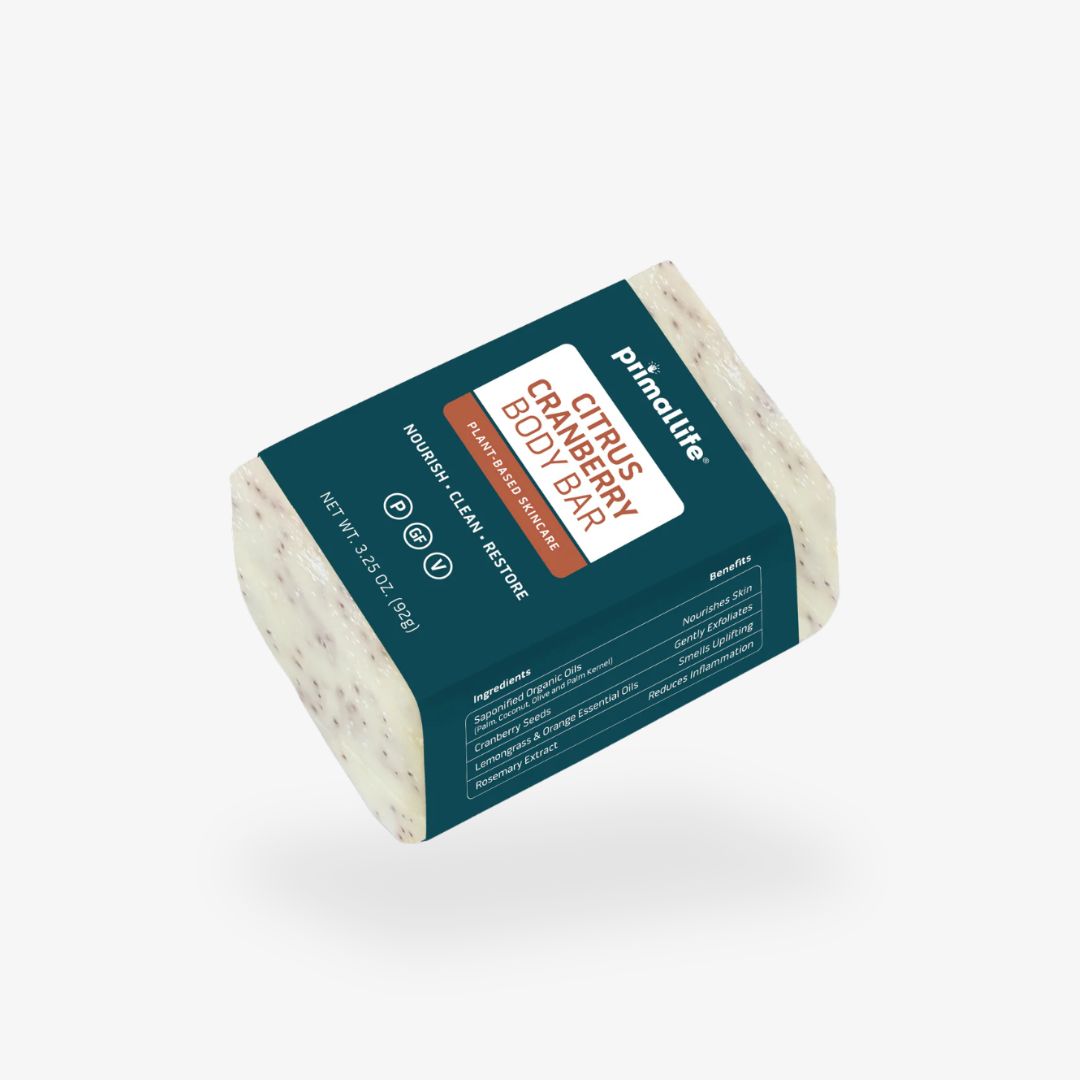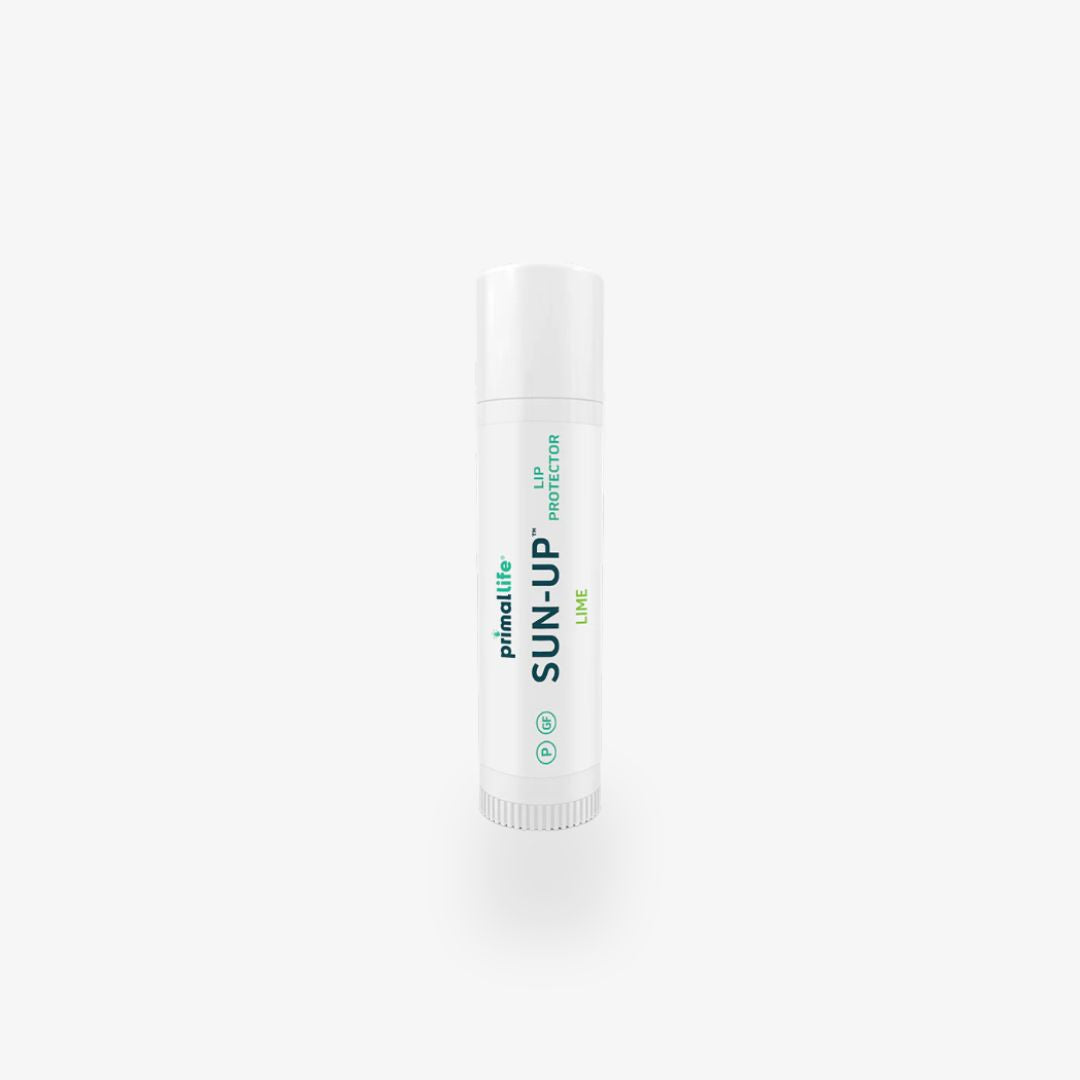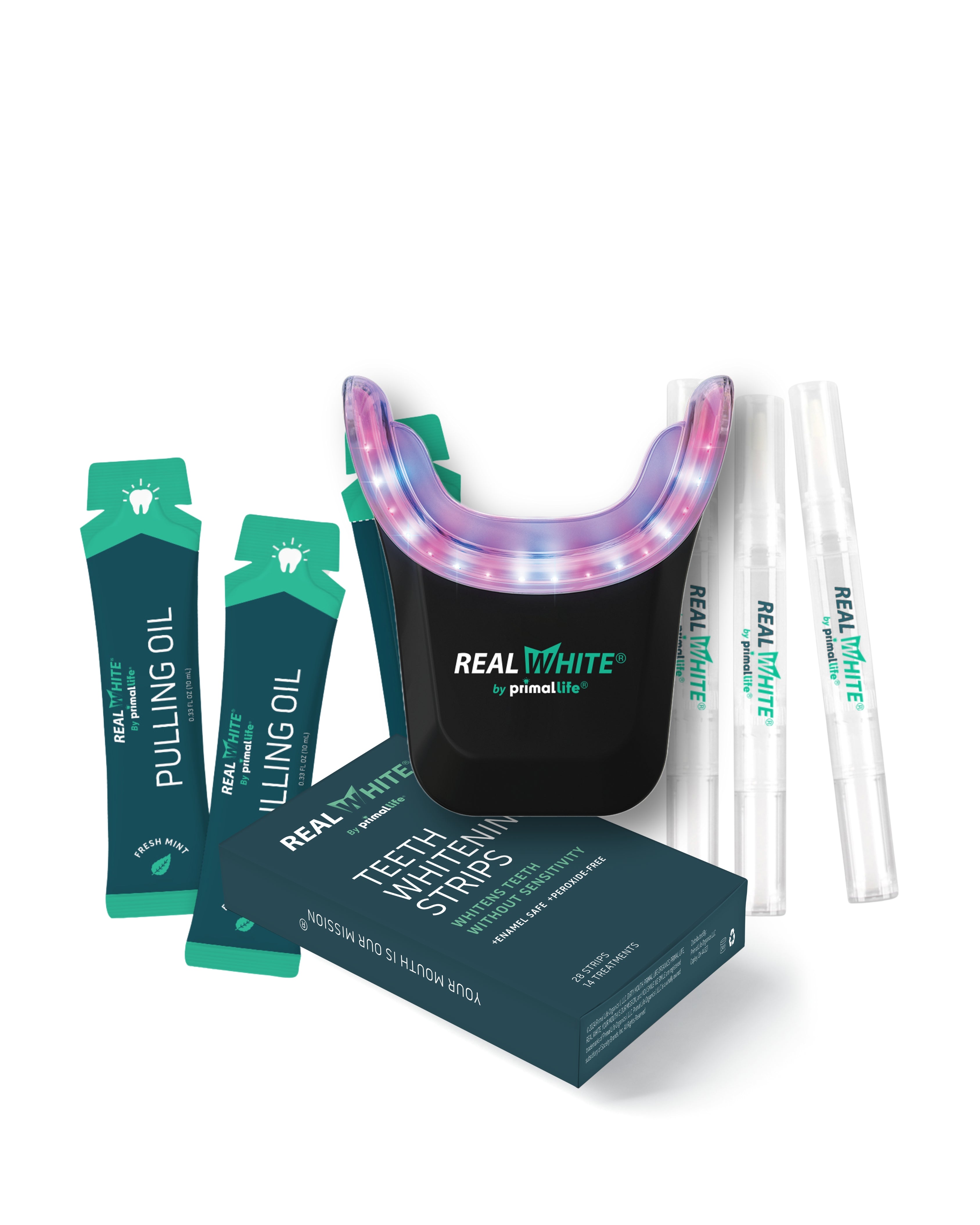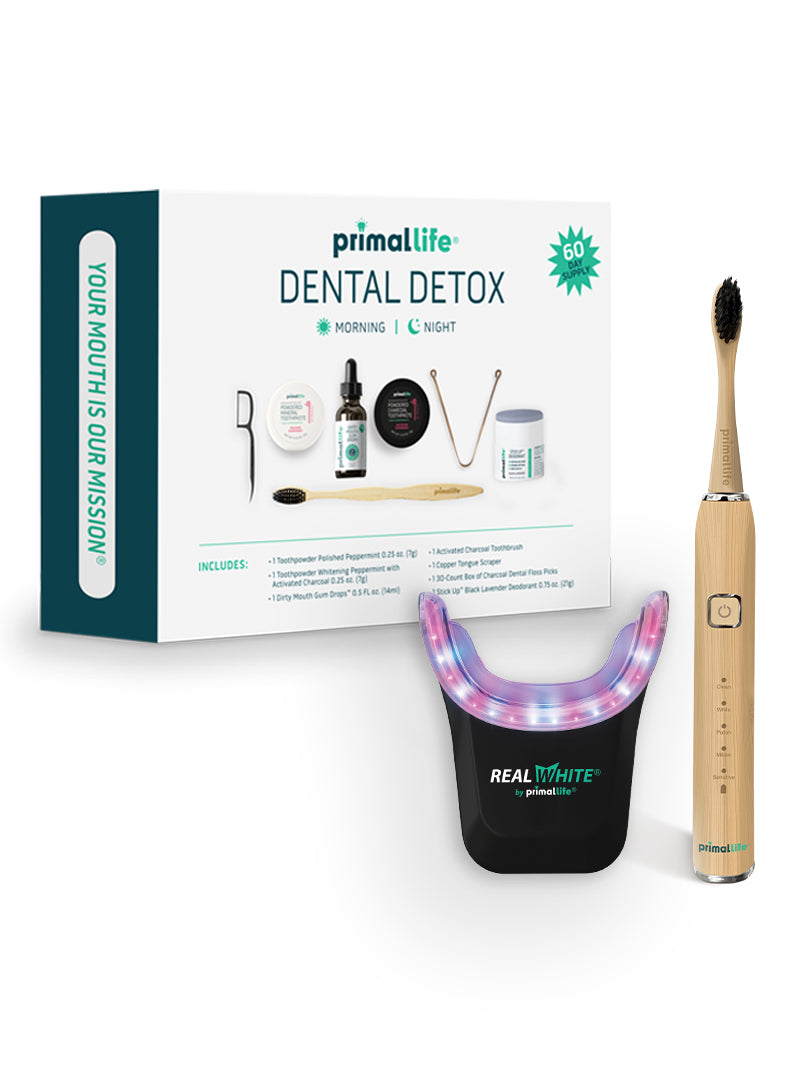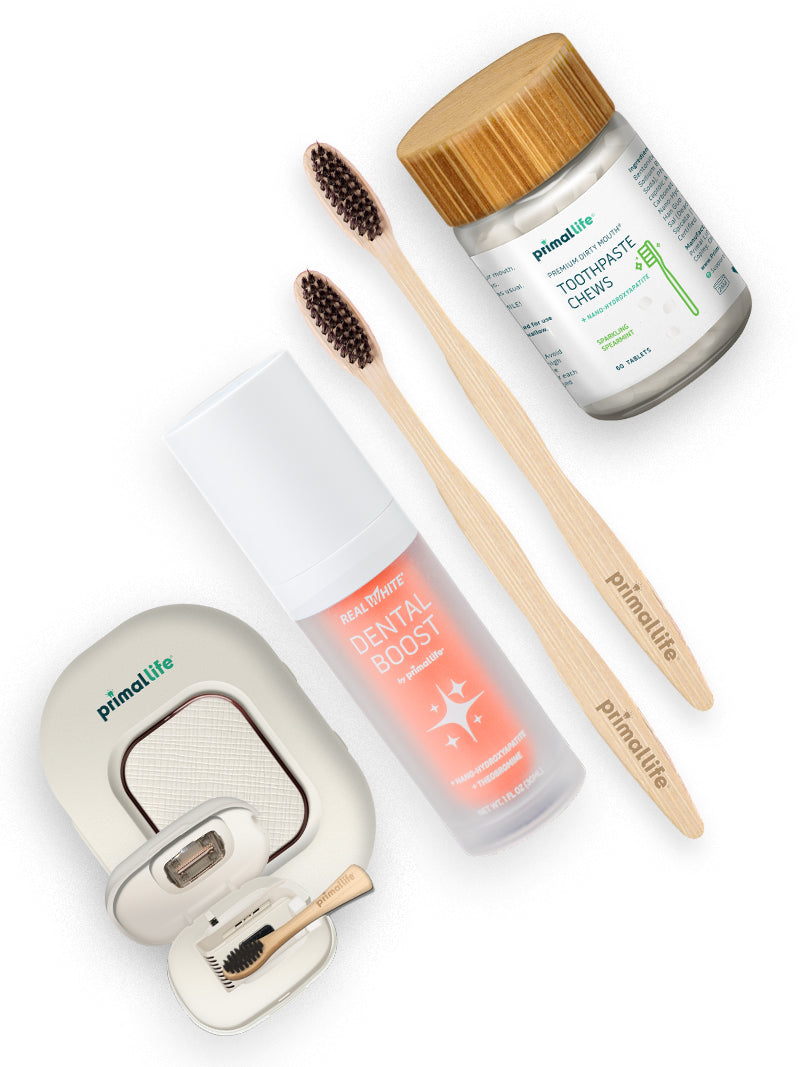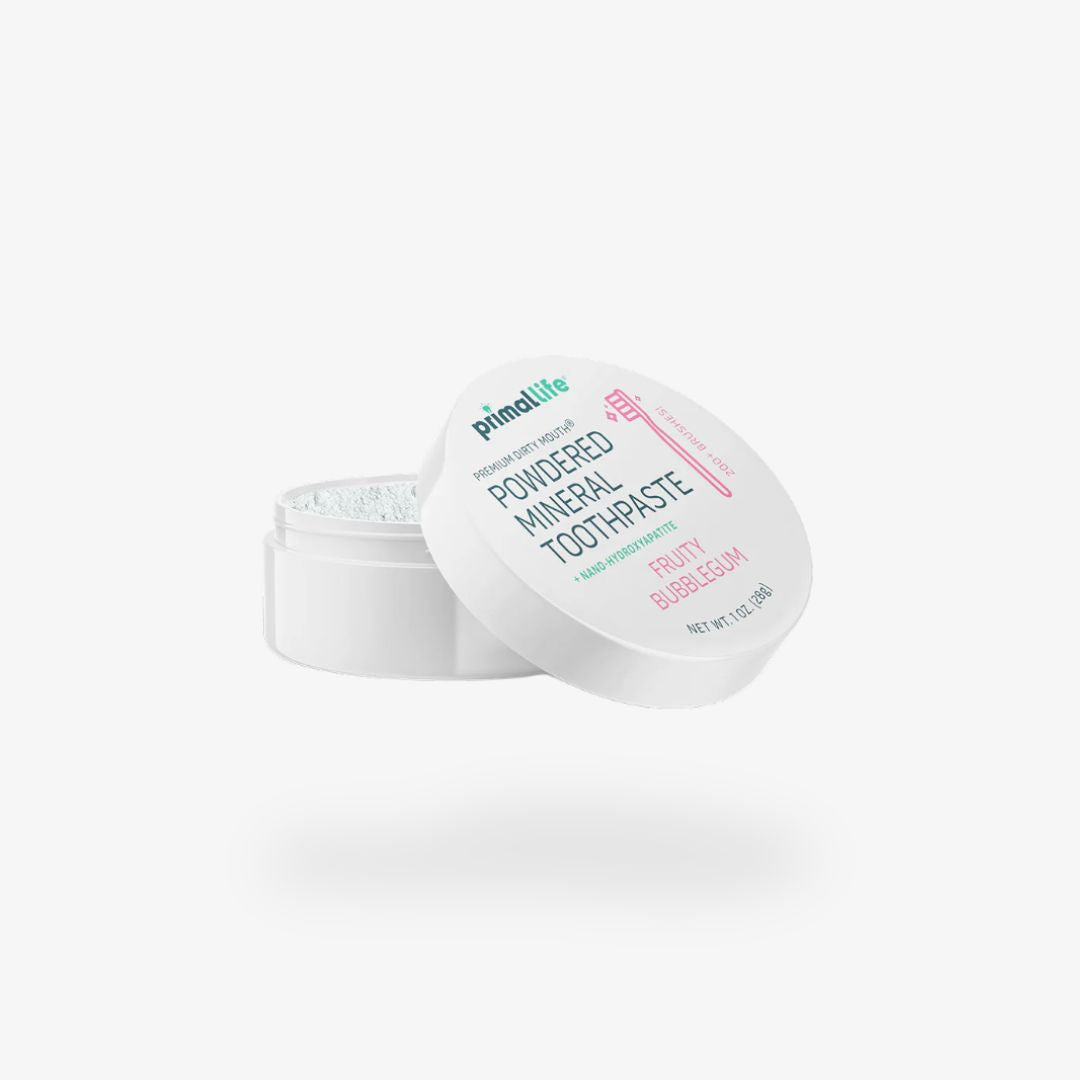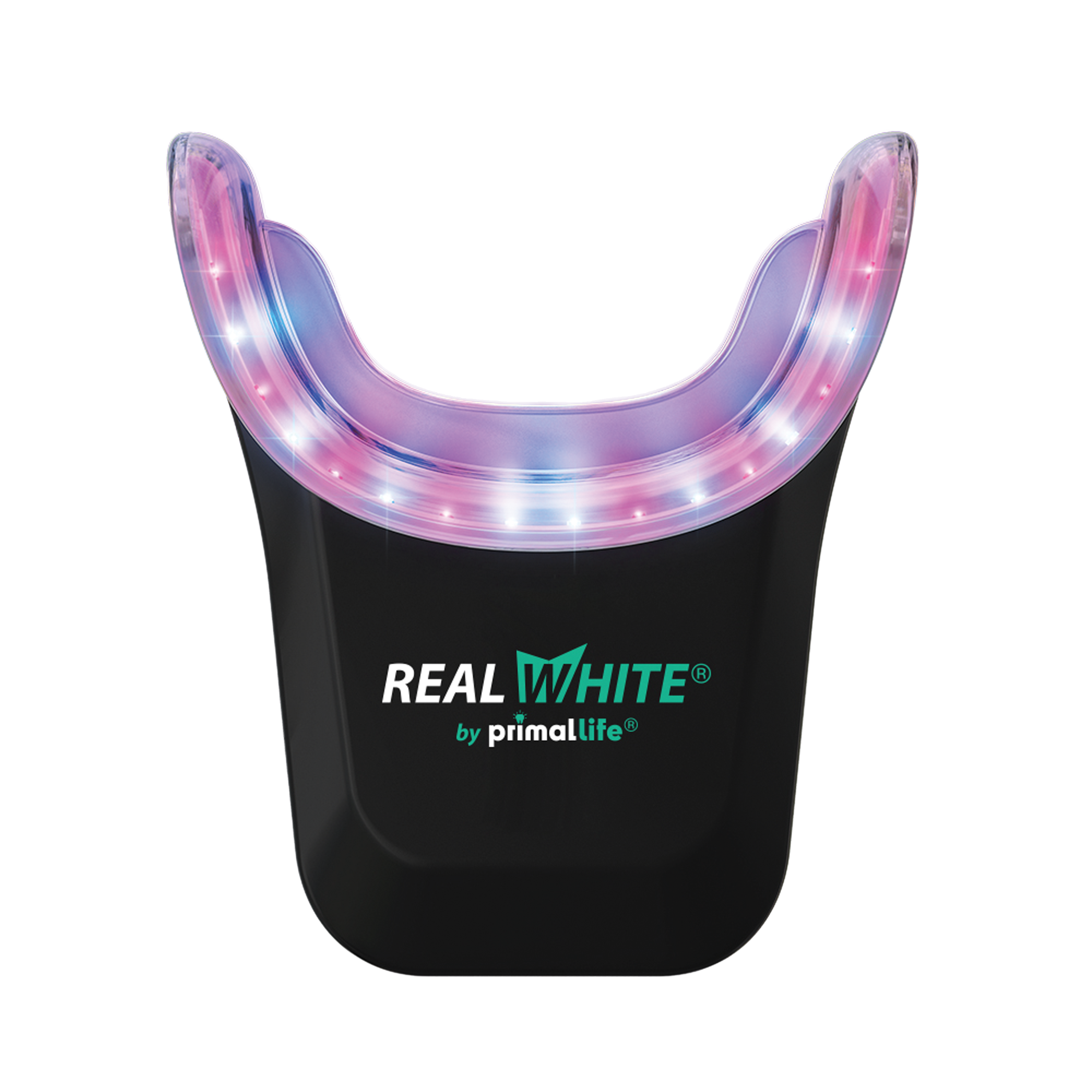
There's nothing quite like the tingling, cooling sensation of peppermint. Whether it's on your nose, tongue, or skin, the minty feeling wakes up your senses. Used both externally and internally, it's one of the most popular and versatile ingredients in the world.
Many everyday products contain peppermint, from chewing gum, breath mints, and toothpaste to lotion, shampoo, and tea. But there's more to this minty favorite than just a cool and refreshing feeling.
Discover the top peppermint essential oil benefits for your gums, mouth, skin, and more, and find out why peppermint oil should be a part of your regular health and beauty routine.
What Is Peppermint?
Known scientifically as Mentha piperita, peppermint is a highly fragrant herb that's a natural hybrid of watermint and spearmint. Its signature cooling effect comes from menthol, a compound found in the oil of the peppermint plant.
For centuries, this native plant of Europe and Asia has been used for its minty taste, cooling sensation, and health benefits. Ancient Egyptians used peppermint oil to treat different ailments, with the first documented use of it dating back to 410 AD. Peppermint also has a colorful story behind its name.
In Greek mythology, Hades was enchanted by a water nymph named Menthe. When his jealous wife Persephone found out, she turned Menthe into a plant that people would walk over. To compensate for this tragedy, Hades gave Menthe the distinctive aroma of peppermint, which has soothed people for thousands of years.
While such a tale is rooted in myth, modern science shows there are real benefits of peppermint oil. Let's discuss how peppermint oil can improve your health.
9 Peppermint Essential Oil Benefits
Peppermint oil can be applied topically, consumed orally, or inhaled as aromatic vapors. Here are nine peppermint oil uses that can benefit your health.
1. Supports Overall Oral Health

Because of its antimicrobial properties, peppermint oil can reduce plaque on your teeth and gums and keep your oral health in check. A scientific study using peppermint oil, lavender oil, thyme oil, and tea tree oil found these essential oils were an effective "antiseptic solution against oral pathogens."
You can even chew on fresh peppermint leaves to support your oral health. For an easy DIY mouthwash, mix one cup of water with a teaspoon of baking soda and two drops of peppermint essential oil.
Another easy way to incorporate peppermint oil in your oral care routine is to use Primal Life Organics Dirty Mouth Gum Serum and Dirty Mouth Peppermint Toothpowder. These products are made with other detoxifying ingredients including bentonite clay, kaolin clay, baking soda, and French green clay.
2. Aromatherapy
There's no denying that peppermint oil is an instant pick-me-up. At least one study has demonstrated that one peppermint essential oil benefit is aromatherapy. Peppermint aromatherapy diminishes daytime sleepiness and improves energy levels.
Adding just a few drops of peppermint oil to a diffuser can create an invigorating effect. Keep in mind that, like other essential oils, pure peppermint oil is highly concentrated. As such, only use a few drops for aromatherapy or other health purposes.
3. Boosts Mental Alertness
Much like the aroma of peppermint essential oil can awaken the senses, consuming it orally may mentally energize you as well. One study found that participants who ingested peppermint oil capsules with high levels of menthol and menthone experienced less fatigue along with enhanced alertness and memory.
4. Eases Irritable Bowel Syndrome
Irritable bowel syndrome (IBS) is a common digestive disorder that results in abdominal pain, gas, bloating, diarrhea, and constipation. Thanks to its antispasmodic qualities, peppermint oil can combat spasms or cramps and relax the smooth muscles of the gastrointestinal tract. (Both symptoms are associated with IBS.)
In a 2014 study, volunteers who took coated capsules of peppermint oil saw improved IBS symptoms. What's more, in a comprehensive 2019 meta-analysis, peppermint oil "was shown to be a safe and effective therapy for pain and global symptoms in adults with IBS."
5. Soothes Indigestion

Even if you don't have a chronic condition such as IBS, peppermint can help relieve gas and indigestion. Cultures around the world have long used peppermint tea as a minty-fresh digestif to soothe an upset stomach.
As it turns out, peppermint oil is a natural carminative, which means it helps curtail flatulence. (Think of it as nature's Beano.)
6. Supports Sinuses and Respiratory Health
Peppermint's strong cooling aromatics have made it a go-to natural remedy for relieving congestion. Clinical studies show that peppermint essential oil has anti-inflammatory, antibacterial, and antiviral elements, all of which can open clogged sinus infections.
Menthol vapors also seem to clear the nasal cavity and help you breathe easier. To maximize the effects of peppermint oil, consider using a diffuser or even just breathing in the vapors of peppermint tea.
If you want to use peppermint essential oil as a chest rub, be sure to dilute it with a carrier oil (e.g., jojoba oil, sweet almond oil, coconut oil, etc.) since directly applying it would be too strong and could cause irritation.
7. Alleviates Multiple Skin Issues

While applying pure peppermint oil directly to skin might cause irritation, when used as an active ingredient in lotions, creams, serums, cleansers, or a diluted DIY concoction, it can help improve a variety of skin diseases.
Studies suggest peppermint essential oil can reduce acne flare-ups, blackheads, dermatitis, greasy skin, sunburn, and even chicken pox, ringworm, and scabies. Try the Primal Life Organics Aura Gemstone and Hemp Facial Serum rollerball, which uses peppermint oil, hemp oil, lavender oil, and other organic ingredients to quickly reinvigorate and rehydrate your skin.
In another study, researchers discovered that a 1% solution of peppermint oil reduced the duration and severity of skin itchiness.
To enjoy the antiseptic and soothing benefits of peppermint oil, be sure to grab a bottle of Primal Life Organics on-the-go hand wash.
8. Can Relieve Headaches
Peppermint oil has been used for a long time as a natural remedy for pain relief, particularly for headaches. A clinical study on people with migraines revealed that peppermint oil (with 10% menthol) significantly reduced pain after it was applied to the forehead and temples.
Likewise, another study found that applying peppermint oil to the forehead and temples helped reduce tension headaches for participants. In fact, it was as effective for headaches as 1,000 mg of acetaminophen (the active ingredient in Tylenol).
The next time you have a headache, consider soaking a cotton ball in a diluted solution of peppermint oil and applying it to your forehead and temples.
9. Might Stimulate Hair Growth
Promising research shows one peppermint essential oil benefit: It can stimulate hair growth. This is because the menthol in peppermint is a vasodilator, which opens blood vessels and improves blood flow. (Often, hair loss is due to hair follicles that don't have enough blood flow.)
While more human studies are needed, a 2014 study done on mice concluded that a 3% peppermint oil solution promoted hair growth without toxicity. After four weeks, mice had more hair follicles as well as thicker and longer hair. The results were similar to those of the drug minoxidil (Rogaine®).
Potential Side Effects of Peppermint Oil
While peppermint oil is generally recognized as safe by the U.S. Food and Drug Administration, it can be toxic if consumed in excess. Some potential side effects include:
- Heartburn when taken orally
- Wheezing or allergic reactions (including asthma) when inhaled
- Rashes, itchiness, or irritations when applied to the skin
- Possible medication interactions — consult your doctor first
Remember: Peppermint oil is potent, so dilute it before you apply it to your skin, inhale it, or otherwise ingest it.
Cool off With Peppermint Oil
With its stimulating fragrance, wonderfully minty taste, and numerous potential health benefits, it's no surprise that peppermint endures as one of the most popular plants on the planet.
From supporting oral health to alleviating skin issues, the many peppermint essential oil benefits continue to captivate those looking for natural ways to feel better.
Because of its potency, dilute essential peppermint oil before applying it to your skin or inhaling it. Also, make sure the capsules are coated to help prevent heartburn. For more ways to support your well-being, check out the Primal Life Organics blog.Read more
Coffee Bean Oil is used in skincare for its many skin-enhancing benefits. It is loaded with antioxidants and fatty acids causing it to be extremely hydrating, as well as effective at smoothing fin...
From its minty-sweet flavor and fragrance to its numerous health benefits, it's easy to see why spearmint oil has been a go-to ingredient for so long. From your oral hygiene and digestion to your m...
